QuestionQUESTION: Hello- I have an 11 week old male black lab. I got him at 8 weeks old.
He is a normal high energy lab except he enjoys nipping at me. I tell him no in a sharp tone but this does not seem to work as he is persist.
He also likes jumping on my kids.
I am unsure how to deal with this as I have read other postings on this site and tried the suggestions, but it does not seem to work.
Please help!
ANSWER: Nothing is going to eliminate those instinctive behaviors very quickly.
Young Labs, which I know best, and other puppies tend to very bad about
biting. You see a litter of them, and all the ones that are awake are biting
another one or themselves. I am not even sure they realize that when they are
alone, if they quit biting, they would quit being bitten. At 3 to 4 months
they are getting their adult teeth, and it seems they spend every waking
moment biting or chewing. One thing you can do at that stage is to knot and wet a piece of cloth. Then freeze it. The cooling will soothe the gums. Only let the puppy have it when you are there to watch it. I maintain a Lab's favorite chew toy is another
Lab. Otherwise they settle for any person they can. They keep hoping to find
one that won't yelp, jerk their hand away, and leave.
You just have to keep on correcting them, hundreds of times, not dozens.
Provide sturdy, safe toys such as Kongs and Nylabones. Avoid things they can
chew pieces off and choke on them. Keep them away from electrical cords.
Crates are essential for most young Labs and other dogs.
The pet stores are full of toys that many dogs will quickly chew up into
pieces they could choke on or cause intestinal blockages. If you are not
there to watch, stick to sturdy stuff such as Nylabones and Kongs. Keep a
close eye on chew toys and quickly discard anything that is coming apart in
pieces. Rawhide is especially bad because it swells after being swallowed.
I don't trust any of the consumable chews. The dogs just gnaw them down to a
dangerous size too quickly. These problems are the worst with, but not
limited to, large, aggressive chewers such as Labs.
Consistently is very important in correcting jumping and other problems. Quickly correcting him each and every time he jumps on somebody is very important. He must never get the affection he wants. A number of things have been used. One of the most gentle is to grab his front paws and hold him up. The traditional knee to the chest or step on his paws are fading from use. As part of the the trend away from negative methods, just step backwards leaving his front feet to fall to the floor. After a few tries, the dog may just stand there looking confused.
---------- FOLLOW-UP ----------
QUESTION: I do not want to be a pain, but my young lab pulled a stunt today that has me wondering how to ensure he stays out of trouble.
I find he is easily distracted so I put him on a leash and take him to the back of the house which is fenced (front is unfenced) to do poop etc. After he is done I praise him, play a bit then put on the leash and return indoors.
Today he ran off before I could get the leash on again. True he is only 11 weeks old and I got him at 8 weeks, but he would not respond to any commands. He just kept dodging me and running..I guess it was total fun for him.
I was very cautious not to chase after him. Instead I approached slowly and called him. It took a while but I eventually got him.
Lucky it was a quiet time of day other wise his stund could have proven very dangerous!
Please advise on how I may instill the right training for him
I thank You!
AnswerYou are putting the leash on inside the house? You need to start obedience training. A good obedience class or book is about you being top dog, not about rewarding standard commands with a treat. Start obedience training the day you get the dog. Build on the foundation of housebreaking. The younger the puppy, the shorter you must keep sessions, only a few repetitions at a time. A few minutes here and there, and by the time the puppy is 4 months old, people will be impressed with what a nice dog it is.
''Elevation for small puppies: Sit on the floor and gently put your hands around your pup's middle, below his front legs, and lift him up. He is facing you. Hold him for 15 seconds. Repeat until he no longer struggles. If he is past 10-12 weeks, lift his front feet off the ground, but don't pick him up.
Cradling for small puppies: Hold your puppy gently on his back, as you would cradle a small baby. If he struggles, hold him firmly until he quiets for 10-15 seconds. With larger pups, you can do this as your sit on the floor, with your pup between your legs.
Quiet lying down: Place your pup on the floor on his side, with all 4 legs pointing away from you. Use your hands on his neck/shoulder area and middle, to hold him in this position. When he is quiet, praise him. Lengthen the time that you keep him quietly in this position. When he accepts this position well, handle his paws and muzzle, while keeping him quiet.''
The quotes mean this isn't my original work. It is copied from my Puppy Raising Manual. I have long used these or minor variations of them, and they are very effective. You may want to give him a belly rub while he is on his back too. Helps bonding. There is a big difference between him rolling over and demanding a belly rub, and you choosing a time to roll him over and rub his belly. The latter cements your place as pack leader.

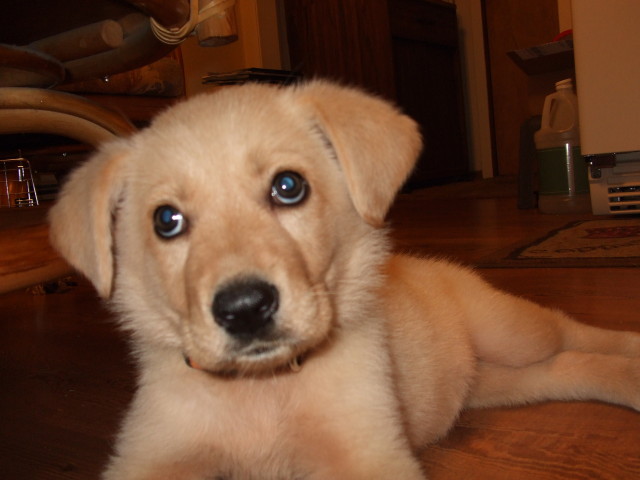 Young pup drinks too much
Question
Hi, Im Roxy & I have
I recently adopted a
Young pup drinks too much
Question
Hi, Im Roxy & I have
I recently adopted a
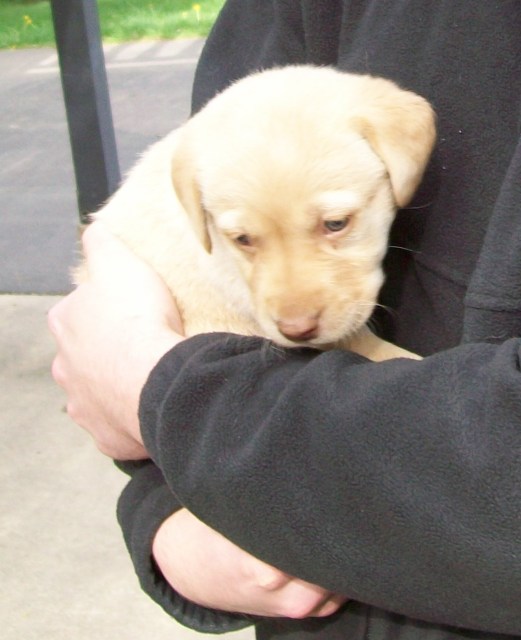 Lab Puppy Eye Color
Question
Yellow Puppy
We are looking at buying a 5 1/2
Lab Puppy Eye Color
Question
Yellow Puppy
We are looking at buying a 5 1/2
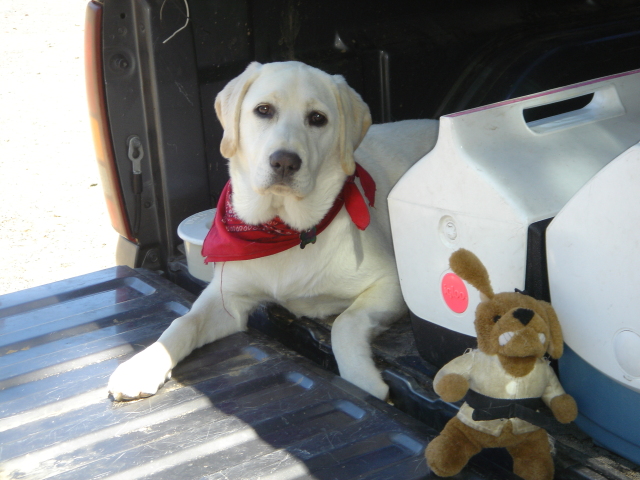 Diet
Question
Lucy and her toy
My yellow lab is about 1 year
Diet
Question
Lucy and her toy
My yellow lab is about 1 year
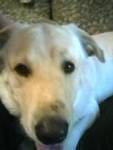 sniffing female owner
Question
Jack
Hello, thank you so much for taking the t
sniffing female owner
Question
Jack
Hello, thank you so much for taking the t
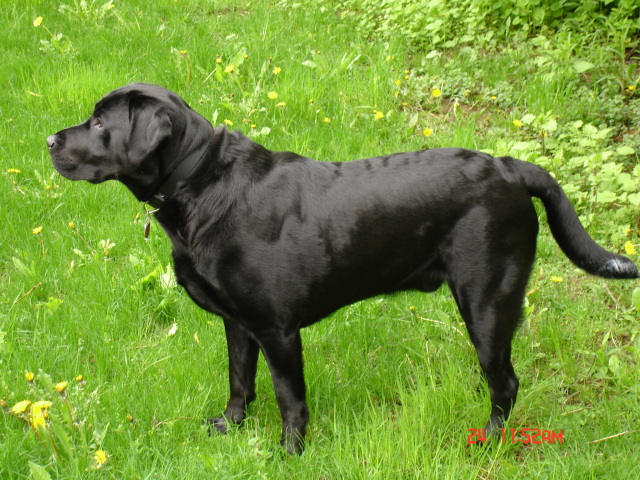 shedding, size, uncontrolled around other dogs
Question
Sawyer
My 13 month old black lab is shedding u
shedding, size, uncontrolled around other dogs
Question
Sawyer
My 13 month old black lab is shedding u